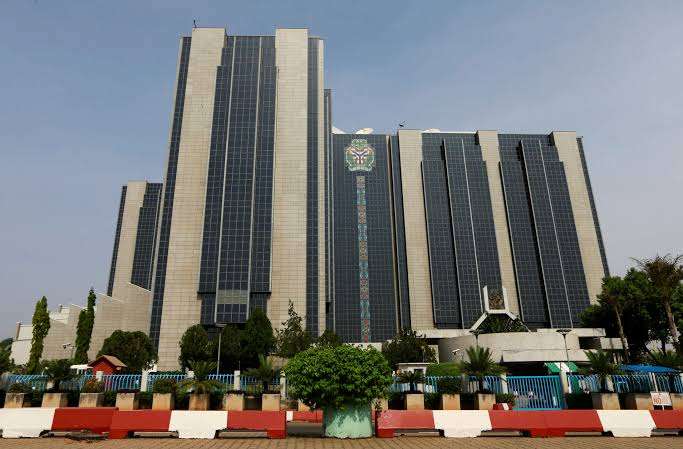The CBN is set to begin accepting applications for its newly launched Knowledge Acceleration Programme (KAP) Thematic Workshops on Tuesday, July 15, 2025.
According to the CBN, applications for the programme will open on Tuesday, July 15, 2025, and selected researchers will participate in a series of workshops in Abuja.
The programme is announced in a circular signed by Aderinola Shonekan, Director of the CBN Research Department. According to the CBN, the workshops are scheduled to be held in Abuja across three sessions—August 4–5, 7–8, and 11–12.
“Interested researchers are encouraged to submit proposals on multidisciplinary topics that contribute meaningfully to Nigeria’s growth trajectory,” the circular stated.
Understanding the Knowledge Acceleration Programme (KAP)
According to the CBN, the Knowledge Acceleration Programme is designed as a collaborative research platform.
Through the KAP Thematic Workshops, selected researchers will undergo peer review, receive expert guidance, and refine their proposals into publishable working papers with the potential to influence national policy, it said.
The circular noted that the CBN is especially interested in proposals that align with its strategic goals and provide policy-relevant solutions for Nigeria’s evolving macro-financial landscape.
Who Should Apply for the Knowledge Acceleration Programme?
The CBN is calling on researchers across Nigerian academia, think tanks, and policy institutions to submit their best ideas.
It says the workshops are open to both early-career and senior researchers, provided they present strong, well-conceived proposals that can inform the nation’s growth, stability, and competitiveness.
What the Workshops Will Cover
Applicants must submit proposals under one of three thematic clusters:
- Development Cluster: Focused on economic growth, inequality, and job creation.
- International Finance Cluster: Encompassing capital flows, external balances, exchange rates, and asset pricing.
- Regulation and Competition Cluster: Covering monetary economics, fintech, digital currencies, systemic risks, illicit financial flows, and payment systems.
According to the CBN, each proposal must be no longer than two pages, written in Georgia 11pt, single-spaced, and should emphasise the “What” and “Why” of the proposed research.
Charts, tables, and references are allowed beyond the length limit. Researchers must cite data sources and use endnotes instead of footnotes.
The Submission Process
The CBN says proposal submissions will open at midnight on July 15, 2025, and will close at midnight on July 22, 2025. Applications for the Knowledge Acceleration Programme must be submitted through the official CBN-KAP portal, here.
Selected participants will be notified of their acceptance and workshop schedules by July 30, 2025.
During the workshops, the CBN says Principal Investigators (PIs) will be expected to present their methodologies, contextualise their objectives within existing literature, and collaborate with peers and experts to enhance the rigour and relevance of their research.
What the CBN Is Looking For
The Bank has expressed a strong interest in proposals that address systemic risks, particularly those stemming from non-bank financial intermediaries. These include:
- Reserve stability and fund flow differentiation
- Off-balance sheet activities and self-regulation mechanisms
- Risk-based capital requirements
- Audit technologies in the face of uncertainty and information asymmetry
According to Shonekan, these areas will help the Bank strengthen its financial stability framework and ensure that monetary policy remains effective and adaptive.
Is The Initiative Necessary?
According to industry experts, the Knowledge Acceleration Programme is very important at this stage, as the country is undergoing rapid transformation, which requires nimble, informed, and context-sensitive regulation.
Analysts added that, by creating a formal platform where scholarly insights can be transformed into actionable policy, the CBN is acknowledging the urgency of bridging theory and practice.
Talking Points
It is encouraging to see the Central Bank of Nigeria (CBN) actively investing in research-led policymaking through the launch of its Knowledge Acceleration Programme (KAP) Thematic Workshops.
By inviting proposals from both early-career and senior researchers, the CBN is democratising policy innovation and signalling its willingness to listen to a broader community of thinkers beyond its own corridors.
At Techparley, we believe this approach could mark a turning point in how monetary policy, financial stability, and development strategies are crafted in Nigeria.
The multidisciplinary structure of KAP, spanning development, international finance, and regulation, means the Bank is not only reacting to present-day issues, but also anticipating the future of money, markets, and inclusion.
However, execution will be everything. The success of this initiative depends on how well the CBN nurtures the selected researchers and embeds their work into real policy frameworks rather than shelving them post-workshop.
If sustained, this initiative could elevate the CBN’s position as both a regulator and a thought leader, setting the pace for smarter, evidence-based governance across the continent.




